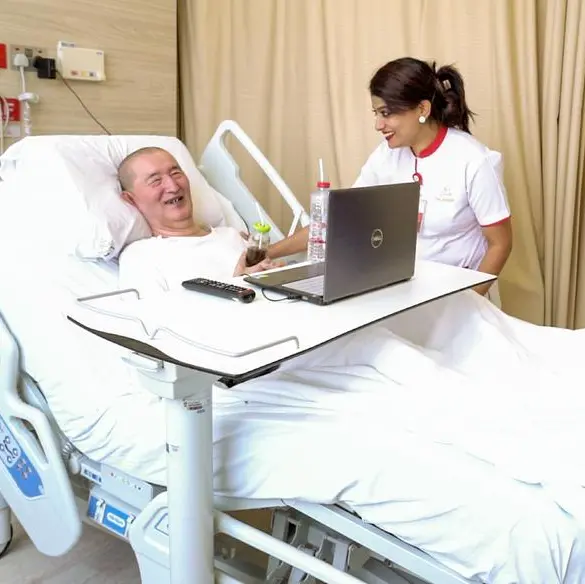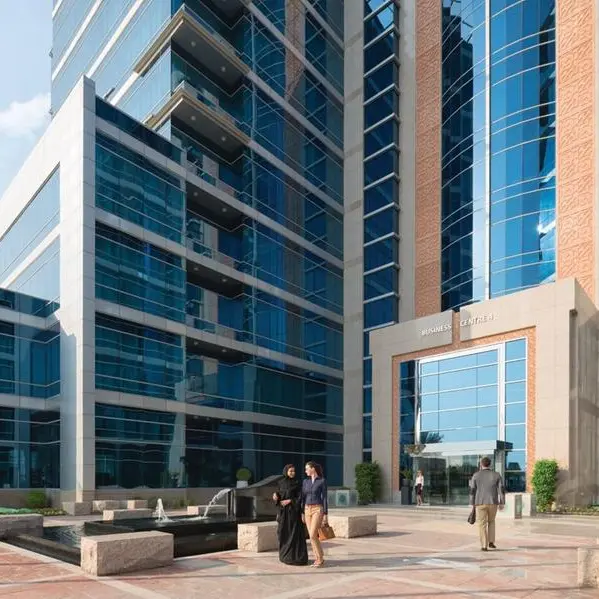15 December 2015
Muscat: Taxi drivers are calling for the unification of transport services in the Sultanate under one umbrella for regulating fares, creating designated parking stations and monitoring taxi activity.
Soon after the launch of Mwasalat, taxi drivers are saying they have been negatively affected by the introduction of the low-cost bus service which has prompted many passengers to travel by the bus rather than take taxis.
During the trial period, Mwasalat transported passengers for free which did not sit well with taxi drivers.
"The trial period after the launch of Mwasalat affected us greatly," said Suleiman Al Jardani, one of six taxi drivers who have been elected by more than 600 taxi drivers to speak for them.
"Who will refuse a ride for free? We have financial obligations by paying car instalments, whether they are minibuses or saloons. How will we pay our bills and feed our family? Some of us have jobs but the majority doesn't," he added.
On the list of requests is the establishment of a union consisting of the Ministry of Transport and Communications, Muscat Municipality, and the Directorate General of Traffic, providing designated parking areas, and Oman National Transport Company (ONTC) ticket prices to be equal to that of taxis.
Many taxi drivers are demanding price regulations to provide a fair deal to passengers.
While the 'good guys' are compliant to the agreed fares, the 'bad guys' often rip off unsuspecting passengers.
Al Jardani said that the ONTC charges 300 baizas to transport passengers from Ruwi to Mabellah, while minibuses and saloons charge 800 and 900 baizas respectively.
Similarly, the minibus charges 400 baizas from the Azaiba traffic lights to the pedestrian crossing across the way from Zubair Automotive to the Shell station at the highway.
To Al Hail, it will cost just 500 baizas, as per the agreed pricing among the drivers.
An official from the Ministry of Transport and Communications told Times of Oman that taxis pose problems and cause accidents while Mwasalat service is better and safer.
Price regulations
In response, Al Jardani said, "Most of the taxi drivers are not compliant because there isn't a governing body to regulate prices."
He added, "For years, we have been asking for price regulations; and if there would have been one, we would have followed it.
"One taxi driver was not compliant with the agreed fare, so we took to the public prosecution after we heard that he had hiked his cab fare."
Adil Al Balushi, another taxi driver said that some passengers ask for a receipt from the taxi. "Some people ask me for a receipt and I will be glad to give them one, but I can't because the prices are not approved."
When the Times of Oman asked whether they accept the idea of being monitored, Al Jardani, without hesitation, said they welcome the idea since it would be safer for the passenger and themselves as well.
Some drivers do illegal acts in the cabs which would put the country's reputation on the line but due to them decent drivers face problems, Al Jardani said.
"If there had been a governing body for taxis, we would have complained against a driver for any wrongdoing but there isn't one," said Al Jardani.
"What we do is confront the driver and warn him about his actions and his usual reply is 'it is my car, and I will do as I like'," added Al Jardani.
One of the requests that taxi drivers are making is the designation of parking areas or stations for taxis in the Wilayats of Muscat, Barka, Bidbid, Samail and Quriyat. There are only three locations in Muscat for taxi parking: Muttrah Corniche, Souq A'Seeb and Mabellah.
"We've been asking for parking areas for years. We need specific station for taxi drivers as it is our dream for passengers to get in the taxi comfortably just like any other country in the world," said Al Jardani.
"We have been prevented from parking in Ruwi near OK Center, in organised parking lanes. Now there is a sign that says no parking at anytime," he further added.
The orange taxis are being possibly driven out of the business at the moment and one must wonder how to counter the problem if the government does not act for the welfare of their citizens.
"There is a lot of competition, especially when Mwasalat came into the picture. I used to make OMR30 a day from Wadi Kabir to Ruwi before Mwasalat, now I'm lucky to make OMR3 a day. I haven't had work for 5 days now," said Sami Al Hadhrami, a distraught taxi driver.
Insurance payment
"We are considering selling our taxis to pay off our insurance and feed our family," he added, saying that the average insurance cost for minibuses are about OMR1,200.
Dr Nithin RS, CEO of Axis group of companies, suggested one solution would be to give free insurance and registration to all taxis and then utilise the taxi body space for private advertisement on monthly/per taxi rates which can be charged to private companies as an additional income to Government.
Muscat: Taxi drivers are calling for the unification of transport services in the Sultanate under one umbrella for regulating fares, creating designated parking stations and monitoring taxi activity.
Soon after the launch of Mwasalat, taxi drivers are saying they have been negatively affected by the introduction of the low-cost bus service which has prompted many passengers to travel by the bus rather than take taxis.
During the trial period, Mwasalat transported passengers for free which did not sit well with taxi drivers.
"The trial period after the launch of Mwasalat affected us greatly," said Suleiman Al Jardani, one of six taxi drivers who have been elected by more than 600 taxi drivers to speak for them.
"Who will refuse a ride for free? We have financial obligations by paying car instalments, whether they are minibuses or saloons. How will we pay our bills and feed our family? Some of us have jobs but the majority doesn't," he added.
On the list of requests is the establishment of a union consisting of the Ministry of Transport and Communications, Muscat Municipality, and the Directorate General of Traffic, providing designated parking areas, and Oman National Transport Company (ONTC) ticket prices to be equal to that of taxis.
Many taxi drivers are demanding price regulations to provide a fair deal to passengers.
While the 'good guys' are compliant to the agreed fares, the 'bad guys' often rip off unsuspecting passengers.
Al Jardani said that the ONTC charges 300 baizas to transport passengers from Ruwi to Mabellah, while minibuses and saloons charge 800 and 900 baizas respectively.
Similarly, the minibus charges 400 baizas from the Azaiba traffic lights to the pedestrian crossing across the way from Zubair Automotive to the Shell station at the highway.
To Al Hail, it will cost just 500 baizas, as per the agreed pricing among the drivers.
An official from the Ministry of Transport and Communications told Times of Oman that taxis pose problems and cause accidents while Mwasalat service is better and safer.
Price regulations
In response, Al Jardani said, "Most of the taxi drivers are not compliant because there isn't a governing body to regulate prices."
He added, "For years, we have been asking for price regulations; and if there would have been one, we would have followed it.
"One taxi driver was not compliant with the agreed fare, so we took to the public prosecution after we heard that he had hiked his cab fare."
Adil Al Balushi, another taxi driver said that some passengers ask for a receipt from the taxi. "Some people ask me for a receipt and I will be glad to give them one, but I can't because the prices are not approved."
When the Times of Oman asked whether they accept the idea of being monitored, Al Jardani, without hesitation, said they welcome the idea since it would be safer for the passenger and themselves as well.
Some drivers do illegal acts in the cabs which would put the country's reputation on the line but due to them decent drivers face problems, Al Jardani said.
"If there had been a governing body for taxis, we would have complained against a driver for any wrongdoing but there isn't one," said Al Jardani.
"What we do is confront the driver and warn him about his actions and his usual reply is 'it is my car, and I will do as I like'," added Al Jardani.
One of the requests that taxi drivers are making is the designation of parking areas or stations for taxis in the Wilayats of Muscat, Barka, Bidbid, Samail and Quriyat. There are only three locations in Muscat for taxi parking: Muttrah Corniche, Souq A'Seeb and Mabellah.
"We've been asking for parking areas for years. We need specific station for taxi drivers as it is our dream for passengers to get in the taxi comfortably just like any other country in the world," said Al Jardani.
"We have been prevented from parking in Ruwi near OK Center, in organised parking lanes. Now there is a sign that says no parking at anytime," he further added.
The orange taxis are being possibly driven out of the business at the moment and one must wonder how to counter the problem if the government does not act for the welfare of their citizens.
"There is a lot of competition, especially when Mwasalat came into the picture. I used to make OMR30 a day from Wadi Kabir to Ruwi before Mwasalat, now I'm lucky to make OMR3 a day. I haven't had work for 5 days now," said Sami Al Hadhrami, a distraught taxi driver.
Insurance payment
"We are considering selling our taxis to pay off our insurance and feed our family," he added, saying that the average insurance cost for minibuses are about OMR1,200.
Dr Nithin RS, CEO of Axis group of companies, suggested one solution would be to give free insurance and registration to all taxis and then utilise the taxi body space for private advertisement on monthly/per taxi rates which can be charged to private companies as an additional income to Government.
© Times of Oman 2015




















